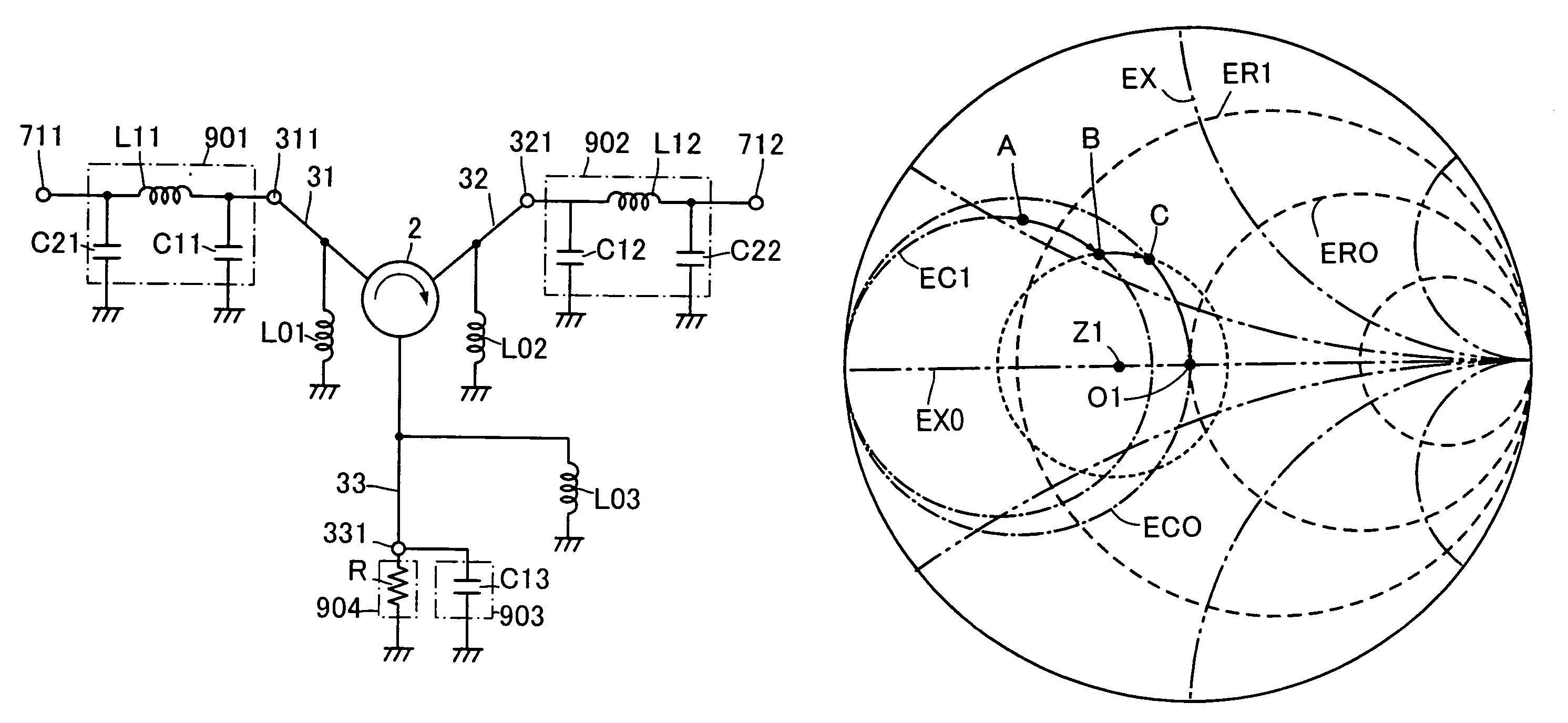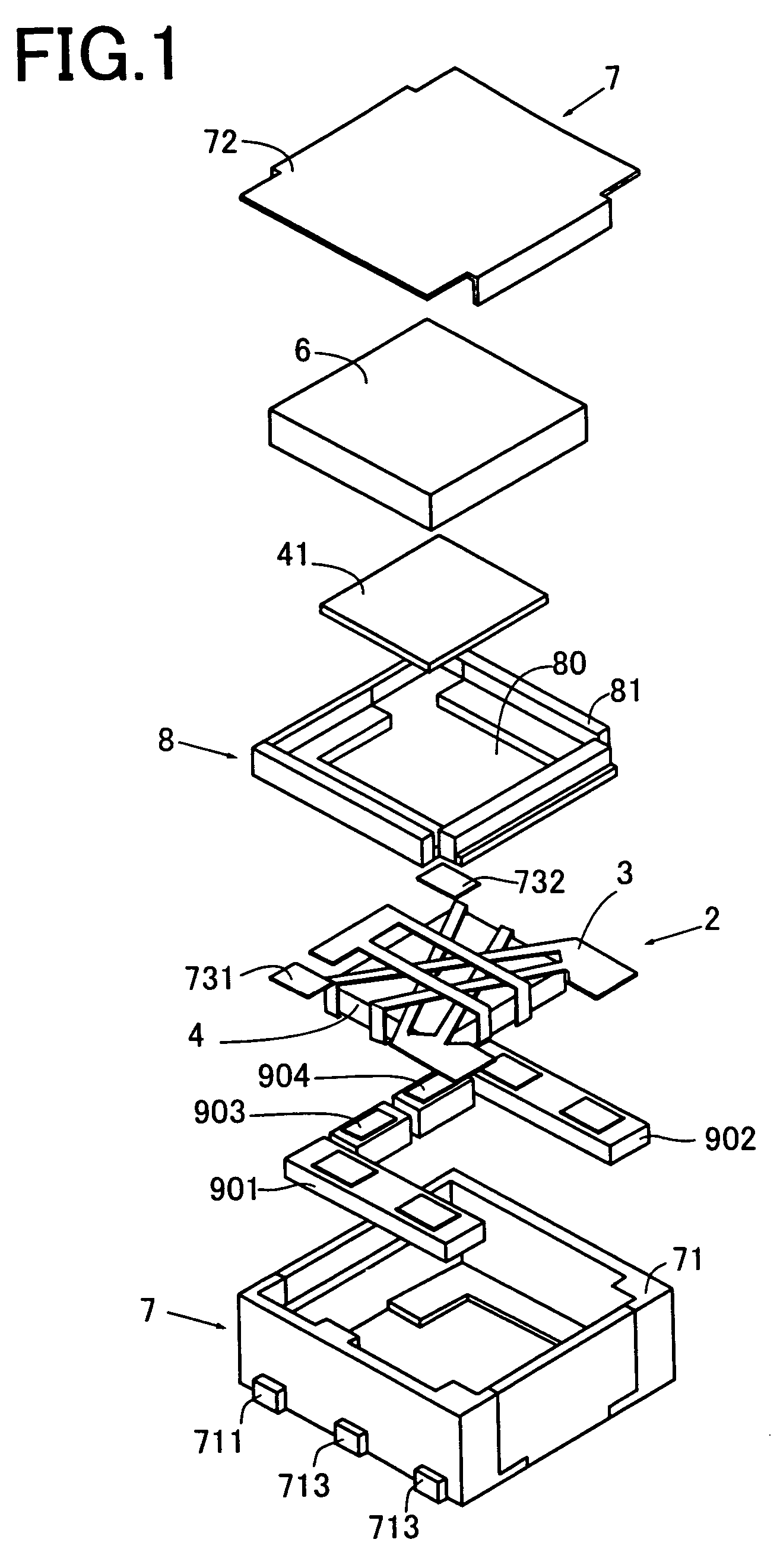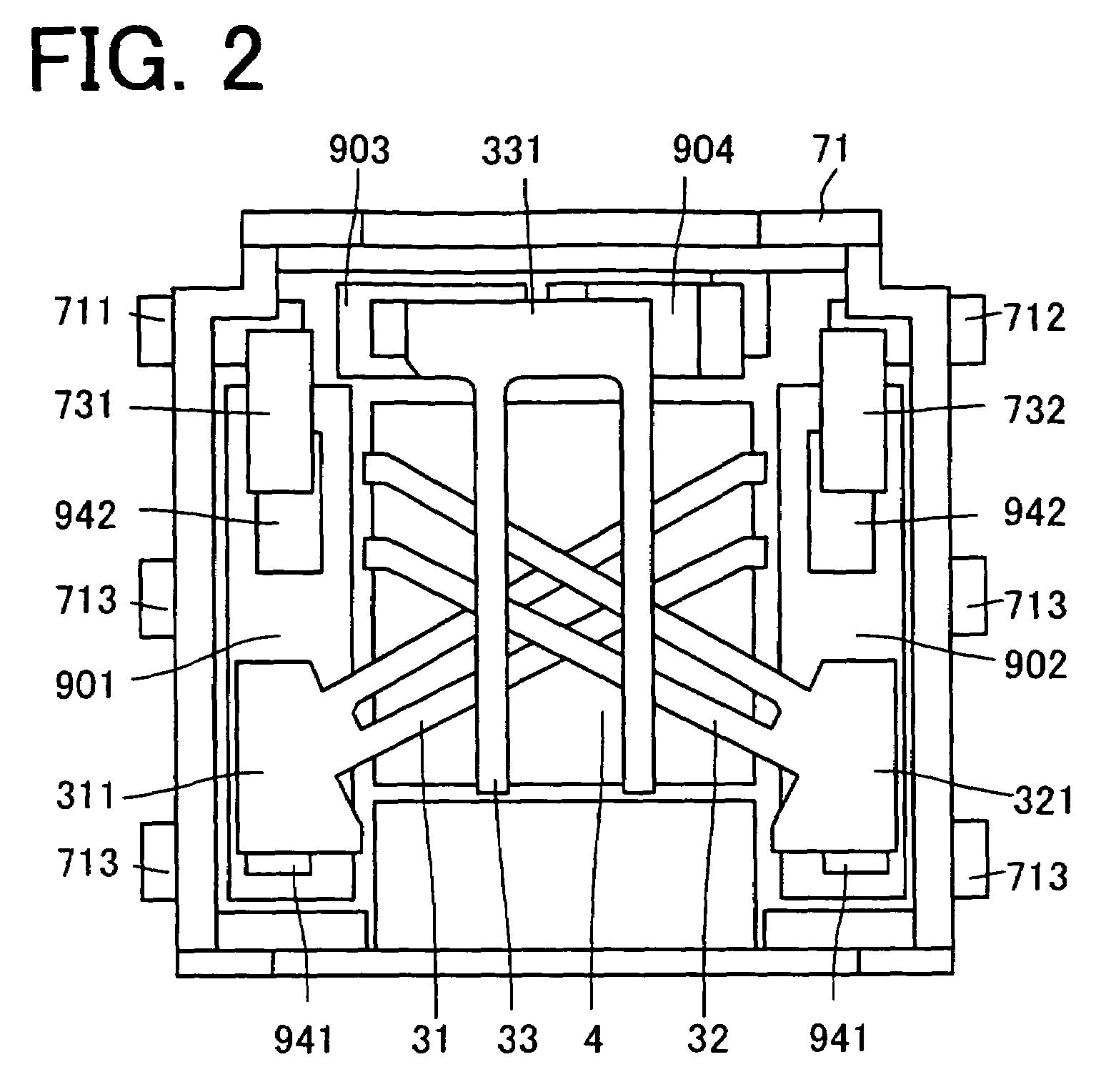Non-reciprocal device
a non-reciprocal, non-reciprocal technology, applied in waveguide devices, basic electric elements, electrical equipment, etc., can solve the problem of serious interference with the attempt to reduce the size or thickness of the non-reciprocal device, and achieve the effect of reducing the insertion loss, broad frequency band, and enabling compaction and thinning
- Summary
- Abstract
- Description
- Claims
- Application Information
AI Technical Summary
Benefits of technology
Problems solved by technology
Method used
Image
Examples
Embodiment Construction
[0036]FIG. 1 is an exploded perspective view of a non-reciprocal device embodying the invention, FIG. 2 is a flat view of a gyromagnetic component of the non-reciprocal device shown in FIG. 1 for illustrating its assemblage, and FIG. 3 is the circuit diagram of the non-reciprocal device shown in FIGS. 1 and 2.
[0037]The non-reciprocal device 1 shown in the figures comprises a gyromagnetic component 2, a permanent magnet 6, a case 7, a pressing member 8, and electric components 901, 902, 903, 904.
[0038]The case 7 comprises an enclosure member 71 and a lid member 72. The enclosure member 71 comprises electrically conductive magnetic metal partitions and insulating resin partitions, has a shape like a box whose top is open, and has its bottom grounded (ground G potential). Each of the insulating partitions has terminals 711–713 for connecting internal circuit elements with external circuit elements. The enclosure member 71 houses the gyromagnetic component 2, permanent magnet 6, electri...
PUM
 Login to View More
Login to View More Abstract
Description
Claims
Application Information
 Login to View More
Login to View More - R&D
- Intellectual Property
- Life Sciences
- Materials
- Tech Scout
- Unparalleled Data Quality
- Higher Quality Content
- 60% Fewer Hallucinations
Browse by: Latest US Patents, China's latest patents, Technical Efficacy Thesaurus, Application Domain, Technology Topic, Popular Technical Reports.
© 2025 PatSnap. All rights reserved.Legal|Privacy policy|Modern Slavery Act Transparency Statement|Sitemap|About US| Contact US: help@patsnap.com



